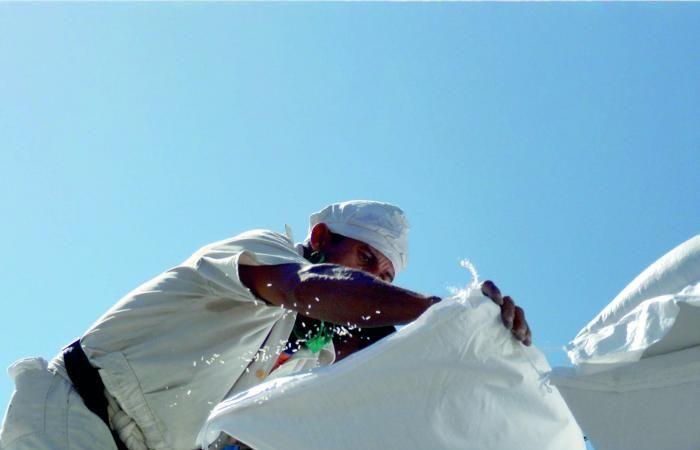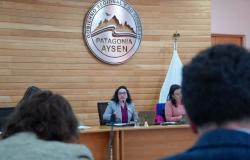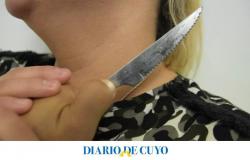Enrique Garrido López, 65 years old, a stevedore, feels that his legs are the same and they are not; he feels that the “hydraulics” – the arms, in docker’s language – are the same and they are not. With a mixture of joy and sadness, which can be read when you look at him intently, he says that he is the same, and he is not.
Garrido, a strong man, with fibrous and agile muscles, an abdomen sculpted by the trade, and with two “hydraulics” that are still capable of holding the bag on his back, lifting it over his shoulder, over his head, and releasing it at lightning speed, to take its place.
In 30 years, perhaps more, he has repeated that bow, the same movement, hundreds, thousands, millions of times, in a profession that is still not valued to its full extent.
Although we accidentally do not remember it, if today I have at home part of the quota regulated by the family basket: a little rice, beans, peas, white sugar; Yes tomorrow will I have? the oil, the… In all these products there is the effort of the stevedores, although during these times the tonnage of the merchandise has decreased: «Before we moved between 2,000 and 2,500 tons in this warehouse, last month we arrived, if anything, about 500,” comments the protagonist of this story.
In warehouses 808 and 809, the legend of good stevedores spread for a long time; among the experts: Julio Martínez Mustelier, Lorenzo Vaillant Machado, with 36 uninterrupted years of work, because the stevedores do not run away, they do not abandon the ring.
Among the youngest, Dionys Quintero Jiménez, Yosiel Crespo, Lázaro Orestes Vallejo Piñero, among other winners in the warehouse logistics part, at the 2nd Youth Colloquium on the Trade Route, held in this province, last month of April.
Yesterday Garrido was in warehouse 809, a basic business unit belonging to the Wholesale Food Company of Ciego de Ávila, in which he and a group of stevedores are the backbone and reason for being: they unload the means of transport, arrange the merchandise and they load them again for distribution in the 491 warehouses in the province, in addition to some other necessary movement within the establishment itself.
Little air flow; An almost unbearable heat comes down from the ceiling. Some darkness. Garrido, like the rest of the crew, lifts the load as if he were doing it on a paved road, in the midst of a superhuman and wealthy effort. Firm steps, and the bag somersaults and falls.
(Five minute stop)
“I do here what the youngest does,” he comments, while the visitors asked, stupefied, where Garrido gets so much strength and resistance.
«Ask any of the lads. I do what they are capable of doing here. They don’t give me the easiest job. The day I’m not on par with them, the day I can’t perform like them, I’m leaving. Maybe it’s a mistake on my part to talk like that, but saying what you feel is not a crime.
«I will still fight a lot. If the “hydraulics” respond to me, even in a wheelchair I will continue lifting bags. It is already a custom, and customs are like habits, that one becomes entangled in them and does not know how to break them.
–Any memory that flutters through your memory?
–Lifting and arranging bags is easy. The difficult thing is the war. Angola, Cabinda, Menongue, the fighting in Cuito Cuanavale…
(Garrido has used up the five minutes of calculated rest and returns to the fight with the bags)
Normally, six tons of merchandise pass through the back and arms of this black Caupolicán every eight hours. He triples them when necessary, as do the others in the brigade, all younger: Dionys, Yosiel, Lázaro Orestes…
When the basket (regular family) becomes elusive and sails on ships, they know that that month they will have to make an extra effort to get it to the warehouse, “as quickly as possible,” comment some of the stevedores, who have arrived at the warehouse and They witness the war between men and sacks full of merchandise.
The stowage is large and Garrido, this time, enjoys another few minutes of stopping. “Not because I’m tired,” he clarifies. Minute by minute history is made.
«We work until Sundays. Last month we were caught on the 30th, and we had to ship the merchandise and take it to the warehouses. We finished at 12 at night. People didn’t say anything, but we know that they thank us for the effort we made.
«If I stop for more than two minutes, I get cold. And the job of a docker is really hot,” she says, while he returns to the fray.
Enrique Garrido López is not the only protagonist. Other hardworking veterans have stories to tell.
Julio Martínez Mustelier, a mulatto short of words, 65 years old and with “hydraulics” in good condition, plans to ask for retirement and, at the same time, get rehired, “so as not to lose the habit.”
“Technology has made great advances in this profession,” says Lorenzo Vaillant Machado, with 36 years in the profession; considered another of the sacred monsters of the pallets. He clarifies that there is a part of the work that continues to be hard, because it requires a lot of physical work, due to the way of working and the conditions in which it is carried out, due to the tension of the moment, especially in Cuba, a country with a blockade that prevents until the arrival of the goods on time at any port.
«The most difficult thing about the stevedoring job is stopping the bags; That is, arranging them on top of the harrow to make the work of the colleagues who move them to the warehouse easier.
«One must do it alone or in the company of another. The docker’s law says that no more than two people should remain on the harrow; sometimes, just one. I managed 700 bags in a while –and he shows his hands, calloused and hard as cobblestones–.
«Once I managed to stop the loading of eight harrows, at a rate of one per hour. It sounds easy, but there were 5,600 bags! I weighed 250 pounds and was a man. Now I look like a little man, diminished, because my strength is not with me.
«The management of the UEB and my colleagues have been considerate of me, and I do minor jobs, but if I am cured, I will return to the heights. It is difficult for one to leave a profession in which we are all a big family.
«I started this job when I was 22 years old. I’m sick. I do what I can. “I know I’m going to die happy, on top of one of those pallets, with a sack as a pillow,” Lorenzo assures, and his voice breaks and he walks away with slow steps, with his back bent.






